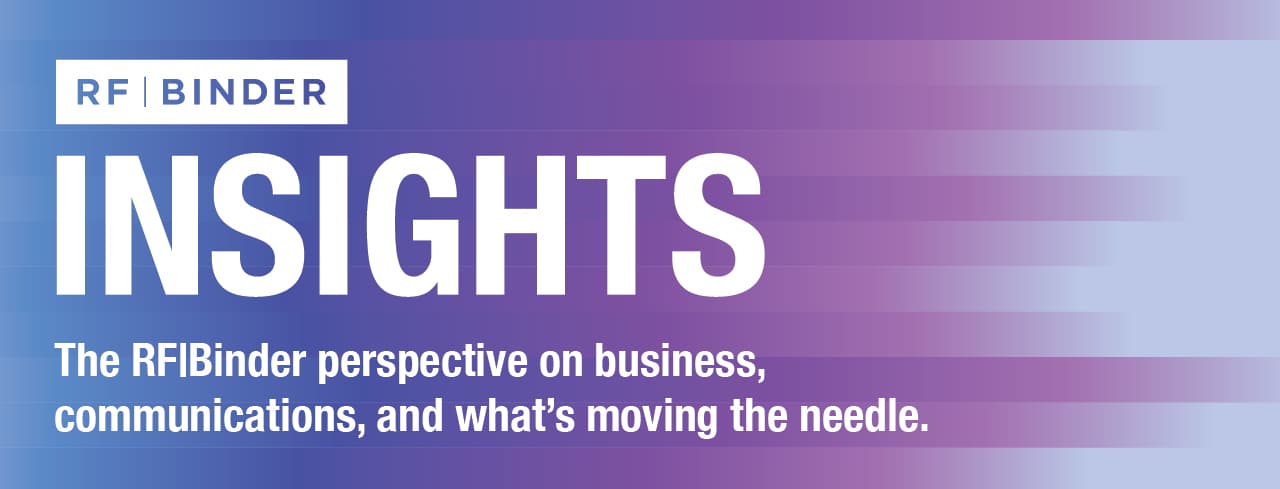The Big Story
As Trust in Digital Experience Declines, Google Steps Up
Google, who has been under continuous fire for anticompetitive practices, has announced efforts to expand user controls to gain more trust with the rollout of My Ad Center. This comes as a result of users becoming more skeptical about advertising and the use of their data while browsing the web.
According to Jerry Dischler, VP/GM of Google Ads, “81% of consumers are more concerned with how their data is being used and 48% are turning away from services due to privacy concerns. At the same time, our research also says that people only want to see ads that are relevant and useful to them.” Hearing about users turning away from services due to privacy concerns is not a new issue in the space. There has been an ongoing struggle between how to serve users personalized online experiences while also maintaining their privacy. Google has been slowly working to improve user privacy as they recently announced pushing out the removal of third-party tracking cookies to 2024.
With My Ad Center, users will be able to tailor sensitive ads revolving around alcohol, dating, gambling, parenting/pregnancy, and weight gain/loss. They will also have the opportunity to completely turn off all forms of personalization, whereas this was used in the past to inform how ads served to them were personalized. In addition to all of this, users will also have more insights into the criteria behind why they are being served a specific ad, along with the identity of the companies behind them. Dischler continued by saying, “to build more trust, we want to continue ensuring that ads respect people’s privacy; and offer transparency, choice, and control. We see these principles as foundational to the future of advertising. It is a key priority for our business – and the foundation My Ad Center was built on.”
Social Updates
There have been several new features added to Pages aimed at increasing user engagement. Members creating posts on LinkedIn can now use a customizable template to create “highly visual” posts. LinkedIn also added clickable link options that lets members transform URL links into visual call-to-action buttons. To help drive and steer conversations, members can choose to pin specific comments to the top of a thread on a post. Other members will be able to directly reply to the pinned comment to continue with the conversation. LinkedIn also announced a helpful update for businesses and organizations by adding the new “our featured commitments” section on pages that will allow them to spotlight their values that are important to them for job seekers.
Reddit has introduced several updates to its Ads Manager aimed at helping advertisers of all sizes start on the platform, manage campaigns, and optimize results. There have been multiple updates on their onboarding process to help advertisers who are new to the platform. These include a new live chat support module on every page of Ads Manager, advertising credits to encourage new advertisers to test creative, and the Reddit Pixel Helper to streamline the pixel setup process. In addition to these, there have been a host of other updates and new features aimed at improving campaign planning, management and targeting.
In 2020, Meta announced their deal to acquire Giphy for $315 million. Shortly following this, the social media giant was under fire by the UK’s Competition and Markets Authority for anti-competitive behavior in the UK Market. This week, the Competition Appeal Tribunal (CAT) ruled in favor of the CMA stating that the acquisition “would limit choice for social media users and reduce innovation in the country’s display advertising.”
Digital Updates
Google Continues to Shift to First-Party Data Solutions
To move away from third-party cookies, Google introduced two new first-party data and machine learning solutions to Display & Video 360: optimized targeting and Exchange Provided Identifiers (EPID). With optimized targeting, which is currently available for YouTube video action campaigns, advertisers can use DV360’s machine learning to identify new and relevant customers that are likely to convert on their campaign goals. EPID will be a helpful frequency management solution tool that will work to avoid ad repetition while still maximizing reach efficiency. In the future, Google reported that EPIDs will serve as a signal for building Google audience segments in order for advertisers to deliver more personalized ads.
Bloomberg to Shut Off Its Open Market Programmatic Advertising
Bloomberg has decided to stop serving open-market third-party programmatic display advertising on both its website and mobile app starting in 2023. They also plan to stop working with vendors, like Taboola, whose products take traffic away from the Bloomberg website. This decision is aimed at improving the user experience as open-market programmatic display ads undergo quality assurance processes to ensure that they better align with the Bloomberg Media brand. The publisher will face the short-term ad revenue loss for potential longer-term gains by focusing on internal efforts to create more user engagement and consumption.
YouTube Expands Advertising Capabilities
YouTube recently announced the expansion of its advertising capabilities on a few different fronts. YouTube’s product feeds have been extended to Discovery ads, which will allow brands to provide real-time availability for their products so that shoppers can locate the most convenient location for purchasing. In addition, YouTube has now made podcast advertising available worldwide including 30-second audio ads. This comes as a result of the platform being the second-most popular podcast listening destination. Lastly, YouTube announced a new CTV advertising offering called “Moment Blast.” Brands and advertisers that utilize this will have access to prime positioning on YouTube Select content, which will include prominent placement during key moments such as movie releases, product launches and sporting events.

